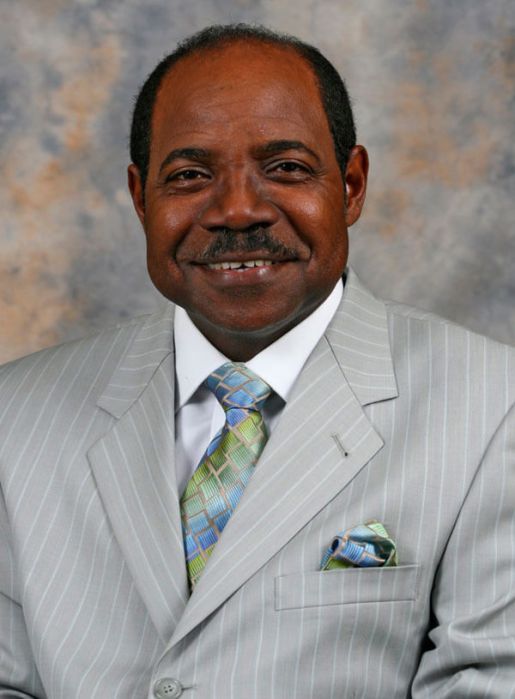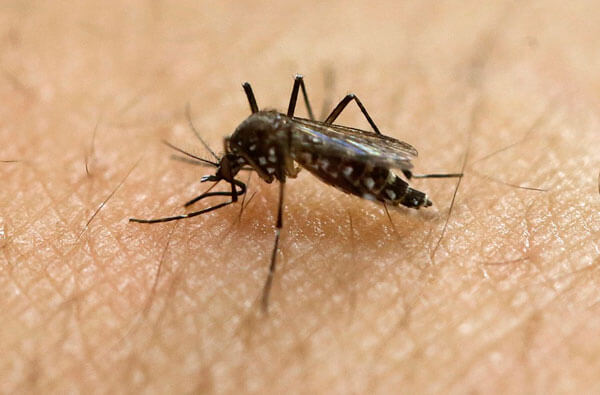Antigua
The Centers of Disease Control and Preventions (CDC) has issued a Zika virus travel notice for Antigua and Barbuda and the Turks and Caicos Islands (TCI) following reported local mosquito transmission of the infection.
Local mosquito transmission means that mosquitoes in the area are infected with the Zika virus and are spreading to people.
Because the Zika virus is primarily spread by mosquitoes, the CDC is recommending that travelers to Antigua and Barbuda protect themselves from mosquito bites.
There is no vaccine or medication for Zika virus and the best way to avoid the infection is to prevent mosquito bites, the CDC said.
It said some travelers to areas with Zika will become infected while traveling but will not become sick until they return home and they might not have any symptoms,
The CDC also stated that sexual transmission of Zika virus from a male partner is also possible.
There is also the Gillian-Barre syndrome (GBS), a rare disorder that can cause muscle weakness and paralysis for a few weeks to several month, which is very likely triggered by Zika in a small proportion of infections, much as it is after a variety of other infections. Most people fully recover from GBS, but some have permanent damage.
Bahamas
The Inter-American Development Bank (IDB) says there is an opportunity for tourism-dependent economies such as the Bahamas to capitalize on the Chinese tourist market.
It is suggesting that many changes and investments would have to be made to capture more of this market.
It is estimated that in 2014, 117 million outbound Chinese tourists spent nearly $500 billion, with leading destinations being Hong Kong, Macau, the United States and France.
The bank is predicting that the number of Chinese tourists would double by 2020.
It said the main constraints on Chinese tourism outside Asia are said to be the cost of long-haul travel and the limited amount of vacation time the typical Chinese worker is entitled to in the year.
An IDB report by Mark D. Wenner and Dillion Clarke on the “Chinese Rise in the Caribbean: “What does it Mean for Caribbean Stakeholders?” noted that an opportunity clearly exists for Caribbean tourism-dependent economies to target the higher income bracket, those who may be seeking different experiences and opportunities to explore far-flung and exotic cultures.
It was noted that for the Caribbean to capture more of the Chinese market, many changes and investments would have to be made, including visa exemptions for Chinese nationals.
Dominica
Regional airline, LIAT will resume flights to and from the Douglas Charles Airport in Dominica starting Friday Sept. 18, 2016.
The airline was forced to suspend services to Dominica on Aug. 27 last year due to the passage of Tropical Storm Erika which resulted in severe damage to the island and closure of the airport.
LIAT will operate one flight to Dominica on Friday, Sept. 18, increasing to two daily flights from Saturday, Sept. 19.
All other flights into and out of Dominica remain suspended until further notice.
Chief Executive Officer David Evans applauded the government and people of Dominica for their resilience over the past several weeks citing their tireless efforts to get the country back to a state of normalcy following the storm.
More than 20 people died when the storm battered Dominica.
Grenada
Another Grenadian has landed a top job with the sub-regional Organization of Eastern Caribbean States (OECS).
Dr. Brian Francis is due to take up the post of director of Economic Affairs and Regional Integration from September, 2016 at its head office in St. Lucia.
In his senior position, Dr. Francis will be responsible for several key departments — Regional Integration (OECS Economic Union); Economic Development Policy including Agriculture and Tourism; Research Data; Trade Policy and Negotiations and the OECS Mission in Geneva.
The local economist, who currently works and lives in Barbados, is a former permanent secretary / director-general in the Ministry of Finance where he provided technical leadership in government’s budget and fiscal policies, debt management, economic growth, economic planning and trade policy.
He also worked at the Ministry of Tourism, Barbados, the Eastern Caribbean Central Bank (ECCB) and most recently as a senior lecturer in the Department of Economics at the University of the West Indies Cave Hill Campus since 2004.
Guyana
Guyana is making moves to protect itself against Venezuela’s persistent claims, says President David Granger.
The president said Guyana has its wealth to protect and the government must ensure that investors in the oil-rich industry feel secure with the investment.
He said there is a reason to believe that the discovery of commercial oil is what caused Venezuela to issue its most recent decree and accompanying behavior.
President Granger lamented that oil gives a main reason why the territorial settlement is so urgent.
Venezuela’s President Nicholas Maduro on May 27, 2015 issued a decree, extending Venezuela’s claim to Guyana’s territorial waters. A map which was issued, accompanying the decree, shows that the claim includes the area where the U.S. oil giant company, ExxonMobil has found oil and continues to operate.
The president said he had several engagements with UN Secretary General Ban Ki Moon for him to play his role as outlined under the Geneva Agreement that was signed between Guyana and Venezuela more than 50 years ago.
Jamaica
The United States Embassy in Kingston, Jamaica said that all interview dates for nonimmigrant visas have been exhausted for the rest of the year.
In fact, the embassy said the demand for visas is so heavy that it is scheduling 1,000 appointments daily.
A non-immigrant visa by definition is one used to persons who live outside the US, but who have a desire to visit the UN temporarily for various reasons, among them vacation, studying or on business.
The Jamaica Observer reported since last month scores of Jamaicans claim they were facing challenges in getting interview dates for the remaining four months of the year, due to the unusually high number of requests that have been made of the US Embassy.
According to the article, there is concern in some quarters, as many Jamaicans are now forced to shelve plans to visit the US later this year, to attend various events, including Thanksgiving celebrations (Thursday November 24) and spend time with family and friends.
Joshua Polacheck, Counselor for public affairs at the US Embassy told the Observer that the increase in applications has, in effect put a strain on the system at the Embassy. He admitted that all the existing dates for interviews had expired for 2016.
St. Vincent
The U.S.-based Center for Law and Democracy (CLD) is urging the St. Vincent and Grenadines government to review the Cybercrime Bill so as to bring it in line with international guarantees of freedom of expression.’
The CLD is the second international organization to have called on the Ralph Gonsalves administration to review the proposed legislation now before Parliament.
Recently the international press freedom group Reporters Without Borders wrote to Prime Minister Gonsalves, calling for the revision of several clauses of the bill, which it said “are extremely damaging to the free flow of news and information and to public debate.”
But in his response, Gonsalves said “substantial amendments” to the bill have already been made at the Select Committee stage and its report to Parliament will reflect these amendments.
In a statement, CLD said it was “strongly” recommending to the government that it reviews “the whole of the Cybercrime Bill to assess its compliance with and to amend it to bring it into line and constitutional guarantees of freedom of expression”.
CLD said St. Vincent and the Grenadines is preparing to pass a Cybercrime Bill, which criminalizes a wide range of activities, including defamation, obtaining information without lawful excuse and cyberbullying.
The statement said while it recognizes the need to address harmful behavior online, including in some cases through the criminal law, “it is not legitimate to criminalize defamation and the scope of several of the other crimes as defined in the bill is simply too broad,”
Trinidad
Trinidad and Tobago has recorded seven cases of the Guillain-Barre Syndrome (GBS) sickness, but are not related to the Zika virus, the Ministry of Health said.
In a statement, the ministry said that while GBS was strongly linked to Zika, only a small number of people with the Zika virus will get GBS.
The Ministry was responding to a newspaper report that indicated seven babies were affected by GBS as a result of the Zika virus.
“While there have been seven cases of GBS in Trinidad and Tobago for 2016, tests have ruled out Zika as the cause and all of these patients were adults,” the ministry said.
GBS is a sickness of the nervous system in which a person’s own immune system damages the nerve cells, causing muscle weakness and sometimes, paralysis.
While several countries experiencing Zika outbreaks have recently reported increases in GBS, it is important to note that there are several other medical conditions that can cause VBS, the Ministry said.
-Compiled by Azad Ali
























